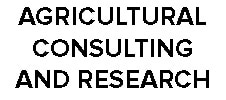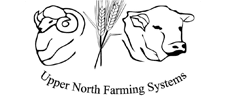Podcasts
Apply for funding
Key Dates
Reporting
Research Projects
Apply for funding
Key Dates
Reporting
Research Projects
The SAGIT Podcast
On average, SAGIT invests $2 million a year in supporting research crucial to advancing South Australia’s $4.6 billion grain industry.
These projects deliver real improvements in countless areas of grain growing, farming systems, soil management, harvesting, storage, processing and marketing, and they also provide technical information to growers.
These podcast episodes outline some of the key projects undertaken in recent years. Please make sure you subscribe wherever you listen to podcasts to stay up-to-date as we add new podcasts to the feed!
LATEST EPISODE
On-row sowing to improve barley and lentil yields
Sam Holmes
On-row sowing in coastal paddocks has led to significant yield gains in barley and lentils in trials undertaken on the Yorke Peninsula. In this podcast episode, agronomist Sam Holmes explains the trial results, the role of soil salinity, and how this simple practice could benefit other growers. Sam also outlines the ongoing research and what it could mean for farming in saline environments.
Improving efficacy of glufosinate in canola
Rebekah Allen
Maximising the efficacy of glufosinate for annual ryegrass control in herbicide-tolerant canola has been the focus of a SAGIT-funded project. In this podcast episode, Hart Field-Site Group’s Rebekah Allen talks about the trials and pot experiments exploring the effects of temperature and humidity on the herbicide’s efficacy.
Optimal flowering period for the Murray Plains
Brendan Kupke
Exploring the optimal time of flowering to maximise wheat and barley yields in the Murray Plains region has been the focus of a SAGIT-funded project. In this podcast episode, SARDI’s Brendan Kupke talks about the combination of field trial data and crop modelling using APSIM used to develop and validate the optimal flowering period.
Managing crown rot
Dr Marg Evans
Crown rot can cause up to 50 per cent yield loss and grain quality downgrades. A potential new option to combat it is a fungicide seed treatment, Victrato, currently under evaluation by the Australian Pesticides and Veterinary Medicines Authority. In this podcast episode, agricultural scientist Dr Margaret Evans talks about her research exploring its efficacy in drier cropping regions.
Improving management of early dry sown crops
Amanda Cook
In this podcast, Amanda Cook from Minnipa Ag Centre discusses recent early sowing trials for different soil types, sowing depths and management strategies across the Upper Eyre Peninsula. With an increasing need to manage larger seeding programs and variable autumn rainfalls, this project aimed to establish guidelines for managing early dry sown cereal crops in the region.
Breeding salt tolerant wheat
Associate Professor Stuart Roy
In this podcast, the University of Adelaide’s Associate Professor Stuart Roy describes how his team has worked to isolate salt tolerant traits from European landrace wheats, then bred them into elite Australian varieties. He says the project is close to creating new wheat cultivars that will deliver benchmark yields when grown on saline soils under South Australian cropping conditions.
Safflower as an alternative oilseed
Dr Rhiannon Schilling
While canola can be a lucrative break crop for many, widespread saline and sodic soils make it unviable across large areas of South Australian farmland. In this podcast, SARDI’s Dr Rhiannon Schilling explains her SAGIT-funded project to evaluate the potential of new super-high oleic acid (SHO) safflower varieties as an alternative oilseed crop for SA grain growers with constrained soils.
Agriculture education
Sue Pratt
With five jobs for every graduate in the agriculture sector, the importance of educating the next generation of agricultural workers about career opportunities is critical. In this podcast episode, AgCommunicators’ Sue Pratt talks about her role as the state’s first ever Lead Agriculture Teacher, providing support to teachers to confidently deliver high quality, engaging food and fibre content.
Crop root health workshops
Katherine Linsell
Soilborne diseases are a significant issue for South Australian farmers. It is estimated cereal root diseases cost grain growers in excess of $200 million annually in lost production. In this podcast episode, SARDI’s Dr Katherine Linsell talks about a series of workshops designed to give growers and advisers the skills to help them identify root disease issues in their paddocks.
Crop nutrition
Sean Mason
In this podcast episode, Dr Sean Mason from Agronomy Solutions, talks about various projects he has been involved with, including an ongoing project with Sam Holmes on the YP looking at inter-row cropping. One project with Glenn McDonald on time of sowing influence on P requirements, and a collaboration with Liz Farquharson looked at optimising P nutrition in pulses to maximise N fixation.
Awnless wheat varieties
Bertus Jacobs
In this podcast episode, Dr Bertus Jacobs from Longreach Plant Breeders, talks about the development of high quality awnless varieties currently undergoing classification for release in 2025. Not only do these new varieties have attractive frost management qualities, but their grain yields are equal to the best varieties currently available.
Canola profitability
Andrew Ware
Andrew Ware, independent agronomist with EPAG Research, talks about the deep-dive he’s taken into canola profitability research, what the limits are in terms of yields and how far to push the economic viability of adding nutrients. He also talks about his involvement with AIR EP and SAGIT and the importance of engaging interns and providing them a hands-on experience in applied field research.
Faba bean nutrients
Adam Hancock
Faba beans are one of the most commonly planted crops in South East SA. However, there are many competing thoughts on what nutrients and fertilisers should be applied to deliver the highest yields. Adam Hancock, Elders, talks about SAGIT funded research designed to quantify nutrient and fertiliser responses, particularly of the less commonly applied nutrients, as well as the validation of tissue testing results.
Lentil varieties for low rainfall areas
Larn McMurray
Huge areas of cropping land in SA are planted to lentils annually, however, issues such as weed control, herbicide damage, establishment, soil toxicity, frost, moisture stress, harvestability have slowed uptake in low rainfall and sandy soil environments. Dr Larn McMurray, Global Grain Genetics, talks about research which has led to the development of germplasm with improved traits and new varieties.
Head-loss in barley
Matthew Tucker
The risk of head-loss in barley crops is often enough of a deterrent for growers not to plant it. Finding a solution has been the focus of work by Associate Professor Matthew Tucker from the University of Adelaide. In this episode, Matthew talks about SAGIT-funded projects exploring a combination of agronomy, genetics and engineering principles to try and reduce the yield losses associated with head-loss.
Frost Learning Centre for farmers, advisers and researchers
Mick Faulkner
Agrilink agronomic consultant Mick Faulkner talks about the Frost Learning Centre which he manages on behalf of the Mid North High Rainfall Zone Group.
The centre for farmers, advisers and researchers is a SAGIT and GRDC co-funded project with input from the Mid North High Rainfall Zone Group.
Boosting lentil productivity
Sam Trengove
Consultant Sam Trengove, Trengove Consulting, talks about SAGIT-funded work into increasing lentil productivity in SA. Lentil production often underperforms on sandy soils of the Yorke Peninsula, so Sam has run projects to understand the causes of low performance and identify cost-effective methods to boost productivity.
Common vetch as a break crop
Stuart Nagel
In this episode, Stuart Nagel, who leads the National Vetch Breeding Program (an investment by the Grains Research and Development Corporation and the South Australian Research and Development Institute, a division of the SA Department of Primary Industries and Regions), talks about a SAGIT-funded project he has led on common vetch as a break crop for marginal cropping systems.
Our research partners





























